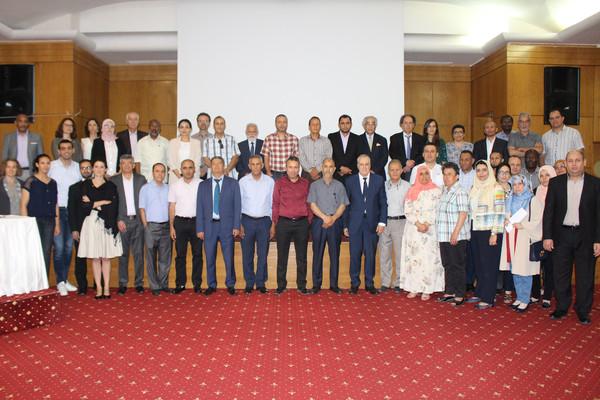More than sixty stakeholders from Algeria, Libya and Tunisia gathered in Hammamet for the second and last basin workshop of the project "Assessing the Water-Energy-Food-Ecosystems Nexus in the basin of the North Western Sahara Aquifer System (NWSAS)". They commented on the results from the analysis of intersectoral issues related to groundwater management in the basin and discussed possible "nexus solutions".
The nexus assessment of the NWSAS is carried out by the Water Convention Secretariat serviced by UNECE, the Global Water Partnership Mediterranean (GWP-Med) and the Sahara and Sahel Observatory (OSS), in close cooperation with concerned authorities from the aquifer-sharing countries as well as with the NWSAS Consultation Mechanism. The project aimed at enhancing transboundary cooperation in the NWSAS and strengthening the capacities needed to address intersectoral issues (see the event page of the regional kick-off workshop in 2017 here and those of the national consultations in 2019 here and here).
At the workshop, participants reflected upon the possible implementation of "nexus solutions" and related actions to be taken in the water, energy, agriculture and environment sectors and in the three countries. The characteristic of the solutions and actions proposed - which have been jointly identified and elaborated by experts and stakeholders - is that they are meant to be implemented in a synergetic and cooperative way across sectors, to maximize positive impact of investments and to reduce possible trade-offs.
The workshop also offered a platform to discuss possible investment streams and regional initiatives that could support activities and concrete projects linked to the nexus solutions proposed, building on opportunities presented by representatives of the African Development Bank (AfDB), the German Agency for International Cooperation (GIZ), and the UN Food and Agriculture Organization (FAO).
The Nexus Assessment Report of the NWSAS, including the findings from the analysis, outcomes of the participatory process, and related recommendations, will be finalized and validated by stakeholders in autumn and published in 2020.
Participants also discussed the main achievements, impacts and benefits generated for the three riparian countries by transboundary water cooperation through the work of the Consultation Mechanism, as well as prospective benefits from increased cooperation. A Policy brief on the benefits of transboundary water cooperation in the NWSAS basin will also be finalized by the end of the 2019.
A detailed report of the workshop is available on the OSS website.
